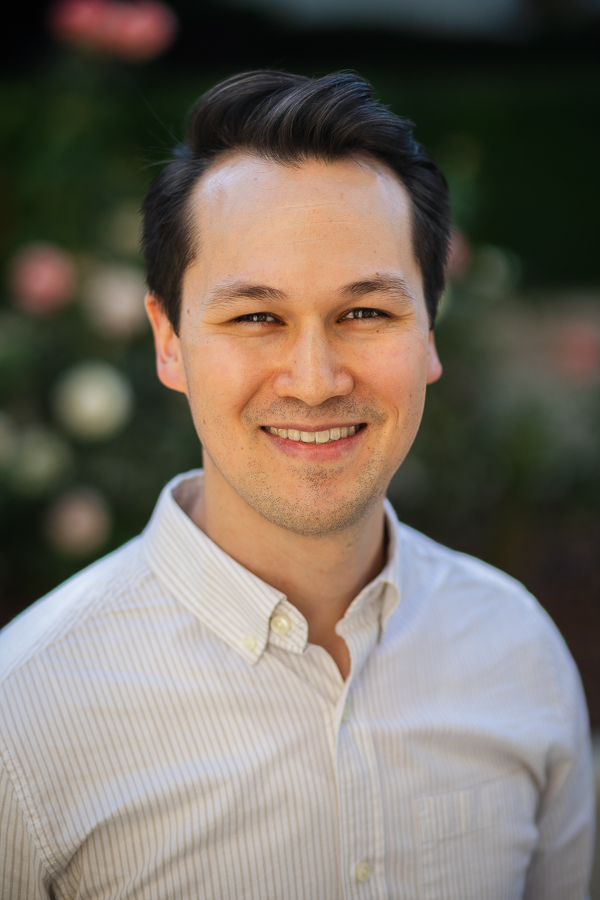Trouble Communicating? Your Unconscious Could Be Why

Many people have trouble communicating what they feel and want in their closest relationships. Instead, of sharing their honest selves they hide and experience relationships as frustrating and disappointing.
You might relate to how the pattern unfolds: Your partner or friend asks “Is something wrong?” At that moment you know that something is wrong. You feel angry, confused, or worried. Some part of you wants to find the words to communicate this, to draw close to your relationship by sharing what you truly feel. But instead–without even thinking about it–you force yourself to smile and reply, “No, I’m good. How are you doing?”
Being unable to share what you truly want and need in relationships is a painful and frustrating pattern for many people. One important way to transform how we show up in relationships is by understanding unconscious patterns of thinking that automatically shape our interactions and act as an obstacle to real communication and closeness. Thankfully, by facing our unconscious we can change how we relate to other people and our experiences.
Understanding Our Unconscious Minds
Decades of neuroscience have confirmed that our brains and mental processes are incredibly complex. In fact, our minds often shape our behavior in relationships without our direct or conscious awareness. Below are three key ways that our minds automatically shape our relationships without our awareness1.
1. Relational learning
Think about how you have learned throughout your lifetime. Some things, like math and state capitals, were learned consciously. At school you intentionally memorized how to solve problems and facts like the capital of California is Sacramento.
But how did you learn what your family valued most or what calmed your parents when they were anxious? This kind of learning was likely implicit or unconscious. You learned these core patterns by being immersed in relationships with people. In other words, you learned constantly just by being with others, making powerful connections without even realizing it.
Take someone who struggles with navigating conflict because they fear saying they are upset and want something different. That person was probably not taught in a classroom to fear conflict and deny their true wants and needs. Their parents probably never sat them down and gave a lecture on fearing conflict in relationships either. Instead, through key relational experiences with the most important people in their lives, they may have unconsciously taken in the message that conflict is unsafe and must be avoided at all costs.
2. Interpreting others and ourselves
Our minds also automatically and unconsciously make sense of behavior in relationships. If a loved one arrives late to meet you, you may automatically interpret their lateness as evidence that they don’t value the relationship as much as you do.
However, a factor outside of their control, maybe traffic or a last minute meeting, may have impacted their ability to arrive on time. Despite knowing this possibility your mind may rapidly interpret the situation as a hurtful reminder about you as a person: “They’re late because I’m not really loved.”
On the other hand, our mind may automatically explain away the loved one’s actions with context, ignoring aspects of their personality and choices that shape the relationship. For example, a partner’s angry outbursts may always be explained, and perhaps even justified, because of a stressful job. In this case how the partner’s personality, feelings, and choices are shaping the relationship may automatically be ignored. Instead of facing the reality of conflict to heal and grow, unconscious patterns may automatically sweep it away.
Automatic patterns like these leave people in a state of constant self-criticism. But this isn’t a fair conclusion–and may itself be an unconscious attack on ourselves! After all, these patterns are automatic and unconscious, we don’t know that we are choosing them. That is, until someone helps us to discover them.
3. Automatic action and triggers
Relationships are shaped by complex patterns involving feelings, thoughts, and actions that are triggered without our awareness. Like a big machine that is activated with just the flip of a switch, your mind and body may have learned ways of thinking, feeling, and acting in response to cues.
One cue could be your co-worker casually commenting that they liked the work of someone on your team. Immediately, you might notice thoughts that your co-worker never liked you, feelings of self-criticism and worry, and body sensations like getting tense and hot. With this complex pattern activated you would understandably take actions like withdrawing and avoiding the co-worker.
These patterns are rarely known to us. In fact, we might only realize we are operating in this unconscious pattern after the thoughts, feelings, body sensations, and actions collectively create some difficulty in our life. At times we might even experience suffering in the form of panic attacks, feeling hopeless, and struggling in our relationships without any awareness of why or how these patterns came to be.
Thankfully, there is hope. By going back and consciously exploring what cued our unconscious relationship patterns, we can discover why we reacted like we did.
Attachment: The Most Basic Relationship We All Learned
These types of unconscious processes in relationships are shaped by our earliest bonds to parents and caregivers, also known as attachment relationships. Because these relationships began before we could speak or consciously make sense of the world, attachment began as purely implicit and relational learning. In other words, we intuited how to have relationship with our specific parents and caregivers by watching, listening, and feeling–all without consciously knowing it!
Our young minds unconsciously took in lessons to help us stay close, safe, and calm with our attachment figures. But as we’ve seen, some of the lessons that once served and protected us become barriers to healthy relationships in the present. Without truly understanding and facing this past, we easily repeat it without awareness in the present.
Therapy Helps Make the Unconscious Conscious
While our minds and their unconscious processes are powerful there is reason for hope. Therapy provides a supportive relationship to gently and wisely explore why we struggle to truly share our desires and needs with others. By courageously looking at the places where you are stuck or trapped, therapy can be a journey together of tracing your journey back in order to finally move forward.
Therapy to help you understand and overcome harmful patterns you are not fully aware of helps in several ways:
1. Discovering automatic patterns together
We all have automatic patterns of feelings, thoughts, sensations, and actions that are activated quickly and without our awareness. Therapy is a special relationship to discover and identify these automatic patterns together. Having an outside perspective also allows you to figure out what cue or trigger brought on the pattern that has you stuck.
Facing these unconscious parts of our minds can feel deeply vulnerable. The reality that we have been caught in some pattern may bring on strong emotions like embarrassment, guilt, or shame. Having a trusted therapist can be a tremendous help when courageously understanding yourself.
2. Facing grief and anger
Therapy is illuminating. Self-critical people may discover the relationship that taught them to be harsh with themselves, people struggling with fear and worry may understand the first time they felt unsafe, and people who can’t stop over-working may recognize powerful messages of accomplishment they once received.
Attachment research tells us that difficult experiences may have once made unconscious patterns necessary. In order to stay close and connected to loved ones and parents, we may have taken on patterns that no longer serve us. Understanding your unconscious patterns to improve your relationships may also mean discovering past moments that bring on grief and anger.
In these moments, feelings of grief and anger are understandable and healthy responses that want to be felt and resolved. Having a supportive and expert therapist provides the help you need to face and resolve these feelings and the suffering they create in your relationships now.
3. Figuring out how to get un-stuck together
Finally, therapy is a unique relationship because unconscious patterns inevitably activate between the patient and therapist. Even if you are unsure of how you are getting stuck in frustrating patterns, the therapy relationship itself will shine a light on what is happening in other relationships.
For example, someone who feels dissatisfied in dating relationships might come to therapy and automatically begin to try and “become” the patient they think the therapist wants them to be, ignoring their own preferences. This pattern of hiding who they actually are can be faced together and understood. Chances are if it is happening in the relationship between patient and therapist it is also being triggered in other important relationships.
Hope for Meaningful Relationships
Our minds and brains are extremely complex and powerful. When functioning well enough they help us to creatively face the challenges of our lives and develop meaningful relationships. But all too often unconscious and automatic patterns bring us to same outcomes over and over again without us knowing how we arrived there. Relationships that once seemed so promising wind up stuck and struggling in the same way that others did before.
You are not doomed to these automatic and frustrating patterns. When you are aware of unconscious patterns you can begin to make choices in relationships that actually lead to connection and joy. Your mind, body, and relationships are ready to heal and learn new ways of living. To deepen your self-understanding and heal your relationships from unconscious patterns, schedule an appointment with me today.

